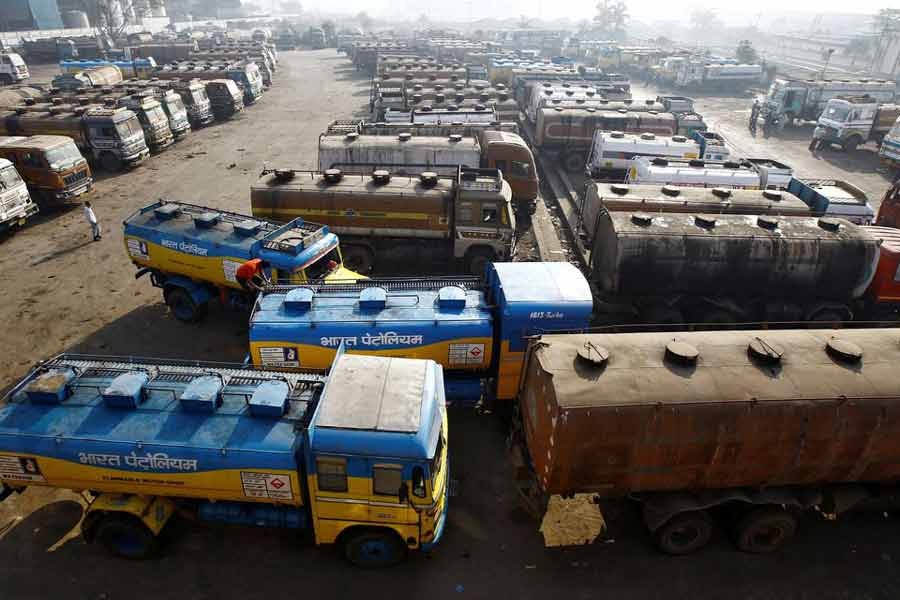India has imposed windfall tax on oil producers and refiners who have boosted product exports to gain from higher overseas margins as the government seeks to increase local supply of fuels to meet rising demand and increase federal revenues.
New taxes along with export restrictions will curb fuel exports by refiners Reliance Industries and Nayara Energy, part-owned by Russia's Rosneft, and could further tighten global oil product supplies and support prices, reports Reuters.
Their shares, along with those of oil producers Oil and Natural Gas Corp, Oil India Ltd and Vedanta Ltd tumbled as the taxes will dent their earnings.
Private refiners Reliance and Nayara have been among India's biggest buyers this year of discounted Russian supplies and have been reaping major profits by reducing domestic sales and aggressively boosting fuel exports, including to buyers in Europe, where many buyers are avoiding imports of Russian crude.
In contrast, state refiners have cranked up runs to meet rising local demand and sell fuels at the government-capped lower prices. Some state refiners have also issued tenders to import fuels.
Reliance shares fell as much as 8.9 per cent to 2,365 rupees apiece, their biggest intra-day percentage drop since November 2020, while Mangalore Refinery and Petrochemicals slumped 10 per cent to 81.55 rupees.
Those of state rivals Indian Oil Corp, Hindustan Petroleum and Bharat Petroleum rose after the announcement of the export restrictions and taxes of 6 rupees per litre for both gasoline and jet fuel and 13 rupees per litre for gasoil.
"While crude prices have increased sharply in recent months, the prices of diesel and petrol have shown a sharper increase. The refiners export these products at globally prevailing prices, which are very high," the government said in a statement.
"As exports are becoming highly remunerative, it has been seen that certain refiners are drying out their pumps in the domestic market."
New restrictions require oil companies exporting gasoline to sell to the domestic market the equivalent of 50 per cent of the amount sold overseas for the fiscal year ending on March 31, 2023.
For diesel, they are required to sell domestic buyers the equivalent of at least 30 per cent of the amount that they export.
Vedanta shares dropped as much as 7.6 per cent to hit their lowest since March 2021 and those of ONGC fell 14.2 per cent, their worst intra-day percentage fall since March 2020.
New export restrictions will not apply to export-focussed units like Reliance's 704,000 bpd refinery at Jamnagar in western Gujarat and on supplies to Bhutan and Nepal, the government orders said.
Refining profit margins, or cracks, for the 10 ppm gasoil grade GO10SGCKMc1 jumped to $54.93 per barrel over Dubai crude on Friday, Refinitiv Eikon data showed. Margins for jet fuel JETSGCKMc1 rose $6.72 to $47.22 per barrel over Dubai crude, while gasoline cracks GL92-SIN-CRK in the region rose to $28.75 a barrel.
"Crude prices have risen sharply in recent months. As a result, the domestic crude producers are making windfall gains," the government statement said, justifying imposition of a levy of 23,250 Indian rupees ($294.04) per tonne on local crude sales.
The new windfall tax will not apply on incremental barrels produced by the companies this fiscal year and to small explorers that produce less than 2 million barrels in the last fiscal year to March 31, 2022.
($1 = 79.0700 Indian rupees)


